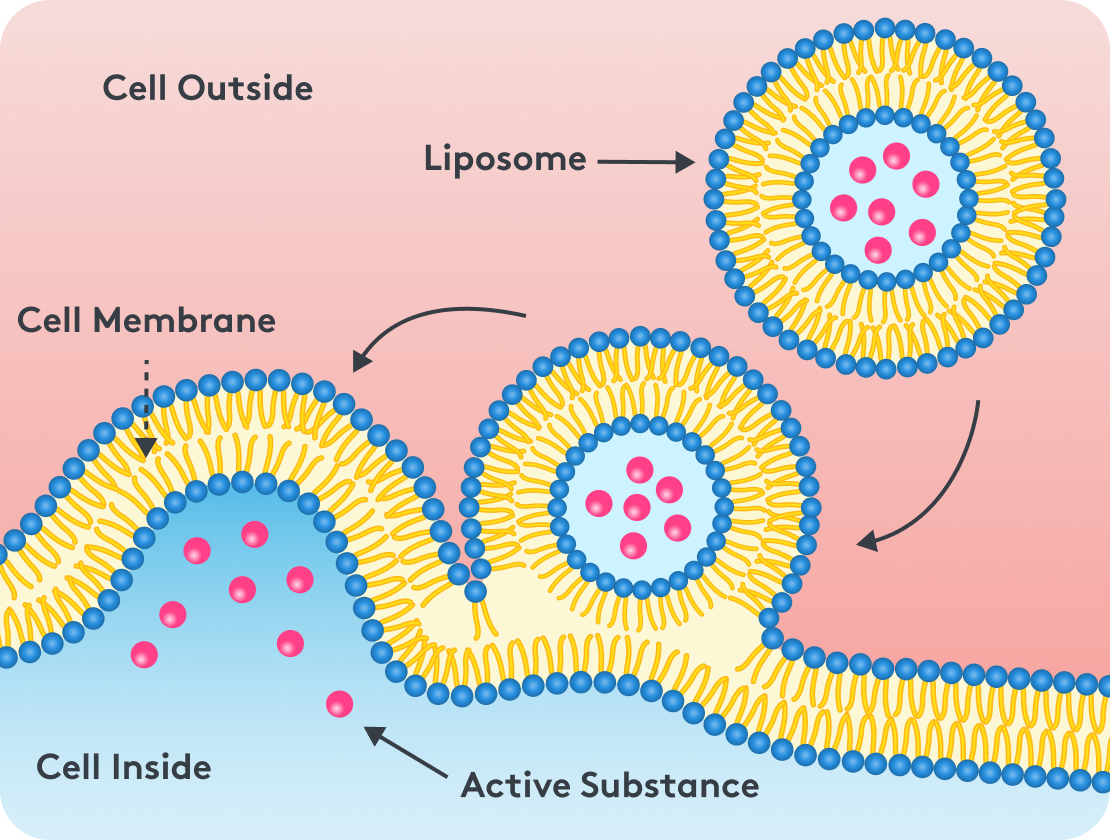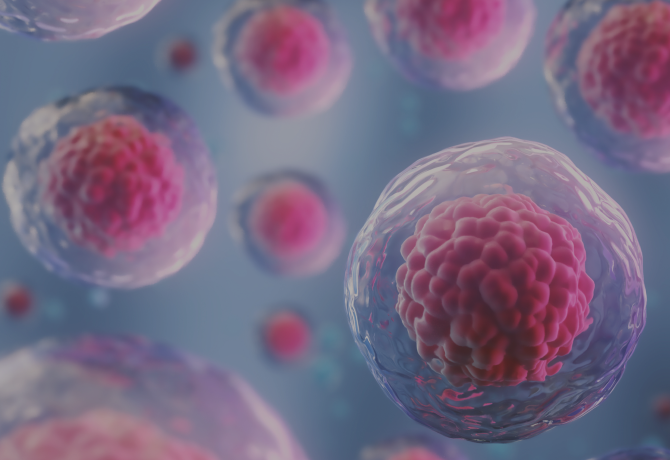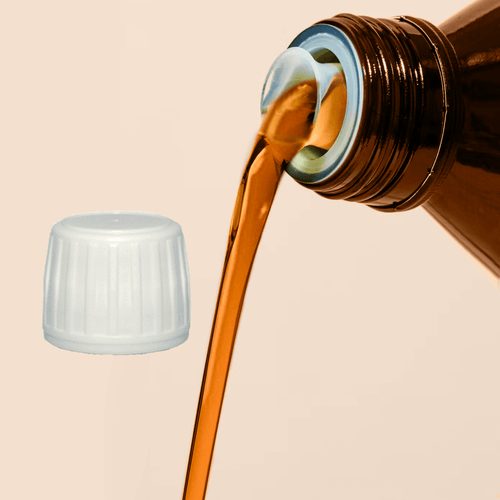Themen dieses Blogartikels:
Table of contents
- Definition: What are liposomes & what does liposomal mean?
- The liposomal technology in detail
- Function of the cell membrane
- How does the transport of substances work in the body?
- Liposomal technology in dietary supplements
- What are the advantages of liposomal technology?
- Is liposomal technology always the best solution?
- Products with liposomes at MITOcare
- For which substances is liposomal technology well suited?
- Liposomal Glutathione: Antioxidants, only better packaged
- What is liposomal vitamin C & vitamin B?
- Liposomal Curcumin: Bioavailability on the next level
- Are liposomes harmful?
- Conclusion: Liposomal? Optimal!
- Sources & Bibliography
Definition: What are liposomes and what does liposomal mean?
Liposomes are tiny fat bubbles that resemble the membrane of cells. They consist of a shell of fat and have space inside for nutrients such as vitamins. Their job is to transport nutrients safely through the body to the cells so that they can take effect at their destination.
“Liposomal” means that a nutrient is packaged like a delicate packet in a liposomal protective cover to protect it from damage during transport. The liposome offers a similar level of protection to a bubble envelope.
Liposomes play an important role in the packaging of active ingredients contained in some dietary supplements.
Tip: Our comprehensive micronutrient lexicon provides you with important background information and understandable knowledge about nutrients that promote your well-being.
The liposomal technology in detail
A liposome consists of phospholipids. These phospholipids are not only found in dietary supplements, but also in your body: phospholipids are the main building blocks of your cell membranes.
function of the cell membrane
The cell membrane or cell envelope is important for the exchange of substances and for the transmission of signals between cells. It also separates the interior of the cell from the environment and creates an enclosed space within the cell.
Good to know: The energy powerhouses of your cells, also called mitochondria , are also surrounded by a membrane. To be more precise, it is actually a double membrane.
How does the transport of substances work in the body?
Membranes are crucial for the transport of substances. Every substance that wants to enter a cell or mitochondrion must pass through this membrane - either without help, with a transporter or with the help of vesicles . Vesicles are the body's equivalent of liposomes.
When they are formed, small parts of a cell membrane are cut off and form a kind of "mini cell", which in turn provides a closed space for the substance contained within. This can then be transported and absorbed by another cell. To do this, the vesicle fuses with the new cell and releases the contents into the interior of the cell.


Liposomal technology in dietary supplements
With liposomal technology in products such as dietary supplements, manufacturers make use of the building blocks of cell membranes and package the micronutrients in a kind of shell. These fuse with the cell so that the ingredients can enter the cell directly.
The big advantage is that your cells can absorb the substances much better with the help of this technology than without it. This means that liposomal substances have good bioavailability
What are the advantages of liposomal technology?
If you use liposomal products to supplement the intake of active ingredients through food, you will benefit from several advantages:
- Improved absorption (higher bioavailability)
- High tolerability
- Easy to take: The liposomal packaging ensures that the contained substances are protected from aggressive stomach acid. This is why most liposomal products can also be taken with food.
- Liposomal products are available in liquid form – this is particularly beneficial for those who take more than one dietary supplement and thus have a few fewer capsules on the menu


By the way: The absorption of ingredients works even better with liposomal technology than with micelles. Micelles are also shells made of phospholipids. However, they do not resemble the cell membrane in the human body as much as liposomes.
Is liposomal technology always the best solution?
Liposomal packaging makes sense especially when the substance to be transported is otherwise poorly absorbed or is already oxidized in the gastrointestinal tract and thus consumed.
However, in the case of vitamins and minerals, which are already well absorbed by the cells, it is important to consider whether packaging them in liposomes is worthwhile. The price of liposomal supplements is often higher than other products due to the complex manufacturing process. In addition, liposomal products cannot contain as many different substances.
Products with liposomes at MITOcare
Our product range is based on a variety of complex products, some with over 40 active ingredients. We cannot offer all of these complex products in liposomal form - and that is not even necessary: alternatively, capsules serve as a protective barrier against external influences and contain far more ingredients.
If you need to take a lot of different substances via dietary supplements, MITOCare's complex products prove to be helpful. Because of the many active ingredients, you often only need to take one or two products, whereas with monopreparations you would need to take ten products.
For which substances is liposomal technology well suited?
There are some substances for which liposomal technology is particularly well suited. These active ingredients can be packaged in liposomes to ensure particularly good absorption.
The following overview shows you which substances are particularly suitable for a liposomal formulation and why.
Liposomal Glutathione: Antioxidants, only better packaged
Are you familiar with L-glutathione? It is the body's most powerful antioxidant. The body can produce it itself, but it is also possible to take the substance in addition. The problem with taking glutathione is that it encounters free radicals in the stomach or small intestine, which neutralize it.
This means that the supplemented glutathione is already used up before it even reaches your cells. Liposomal glutathione is therefore a good alternative¹: The liposomes ensure that the sensitive active ingredient can overcome the aggressive stomach acid in the digestive tract and then more of the substance can be absorbed by fusing the liposomes with the cell membrane.
Advertisement
- Specially developed for the immune system and energy balance
- From natural raw material sources: OPC from grape seed extract with vitamin C
- From 3 essential amino acids: glutamic acid, cysteine, and glycine
- No fillers or flavorings
- Developed with doctors and experts
- Delicious taste and easy to dose
- Vegan and vegetarian, free from lactose and gluten

What is liposomal vitamin C and vitamin B?
Antioxidants such as the water-soluble vitamins , which include the B vitamins and vitamin C, can also be packaged liposomally. Liposomal vitamin C is a popular option when it comes to taking the vitamin with the highest possible bioavailability² – even if liposomes are not as crucial for absorption in the body of vitamin C as they are for L-glutathione.
Liposomal Curcumin: Bioavailability on the Next Level
Did you know that curcumin , the well-known secondary plant substance in turmeric root, is very poorly absorbed by your cells? This is because the substance has a very long and rather bulky structure and is also fat-soluble.
You may have heard the advice to take turmeric and curcumin together with piperine, a substance in black pepper. This combination is supposed to improve absorption. However, liposomal curcumin beats this combination by far.³
Are liposomes harmful?
Since liposomes are made of natural substances and there is an equivalent in the body, liposomes and liposomal products are not harmful to you.
Conclusion: Liposomal? Optimal!
If you are currently looking for suitable nutritional supplements for your lifestyle and value high bioavailability of the respective active ingredient, then it is worth taking a look at supplements with liposome technology.
Regardless of whether you want to supply your body with B vitamins, curcumin or other active ingredients: There is a wide range of liposomal products available. If a nutritional supplement is liposomal, this means that its active ingredient is protected from digestive enzymes and other substances that make it difficult for it to reach the cell nucleus.
This article is based on carefully researched sources:
Sources & Bibliography
- Sinha R, Sinha I, Calcagnotto A, et al. Oral supplementation with liposomal glutathione elevates body stores of glutathione and markers of immune function. Your J Clin Nutr. 2018;72(1):105-111. doi:10.1038/ejcn.2017.13
- Vitamin C Gopi S, Balakrishnan P. Evaluation and clinical comparison studies on liposomal and non-liposomal ascorbic acid (vitamin C) and their enhanced bioavailability. J Liposome Res 2021;31(4):356-364. doi:10.1080/08982104.2020.1820521
- Shaikh J, Ankola DD, Beniwal V, Singh D, Kumar MN. Nanoparticle encapsulation improves oral bioavailability of curcumin by at least 9-fold when compared to curcumin administered with piperine as absorption enhancer. Eur J Pharm Sci. 2009;37(3-4):223-230. doi:10.1016/j.ejps.2009.02.019




















